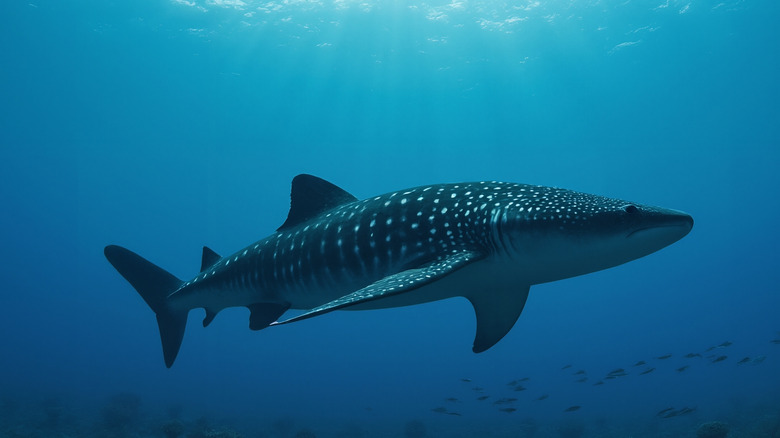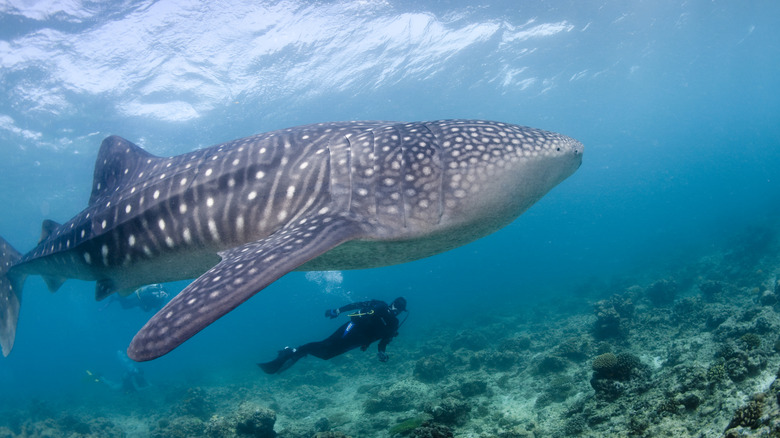Whale Sharks Have Been Changed By Humans In A Truly Remarkable Way, Says Study
We don't like to admit it, but humans are an invasive, destructive species. Our actions often endanger or kill sea creatures and other wild animals. From intentional pollution to accidental massive oil spills, the wildlife and environmental effects have been catastrophic, but sometimes, our actions benefit animals unintentionally. A 2025 study in Diversity and Distributions in Australia revealed that whale sharks in particular have been using man-made structures, like offshore oil and gas platforms, to their advantage when foraging.
The scientists who led the study tracked 78 whale sharks off the western Australian coast for more than 14 years and found that they travel along routes that connect feeding grounds. As oil and gas platforms attract plankton, they also attract whale sharks and help them navigate the oceans. Phytoplankton rely on sunlight to create energy, so they typically frequent areas where sunlight penetrates the water. Researchers believe these offshore structures attract plankton because the platforms' artificial lights mimic sunlight.
Creating feeding opportunities and navigational assistance aren't the only ways humans are changing whale sharks in a remarkable way. Numerous dedicated efforts exist today to protect this endangered species, and there are many ways you can get involved and make a difference, on purpose and without any large structures.
Other ways whale sharks can benefit from humans
Despite the benefits that oil and gas platforms provide, the whale shark population is still dwindling as a result of fisheries, climate change, and vessel strikes, among other reasons. However, with your help, the species can make it on the list of amazing animals that survived near-extinction and made a comeback.
One way you can make an impact is by supporting conservation organizations like the Wildlife Conservation Society, Marine Megafauna Foundation, and World Wildlife Fund. These groups focus on the protection and research of whale sharks, among other species. You can support them financially by donating or physically by volunteering. Backing legislation and policies that establish marine protected areas is another beneficial option. Not in a position to donate or volunteer right now? You can still help whale sharks, simply by making smarter, wiser choices. Never pollute, and eliminate chances for accidental pollution, such as carrying an unsecured plastic water bottle while you're walking along the beach. Try to reduce your use of plastic altogether, and recycle when you can.
Through conscious, deliberate action, we have the power to keep more whale sharks alive. As long as man-made platforms remain in the ocean, these gentle giants can continue to benefit from the opportunities they unintentionally provide. Interested in learning more about sea wildlife? Check out the beautiful place in Malaysia where sea turtles might swim up to you or why having a pet otter might not be as fun as it sounds.

